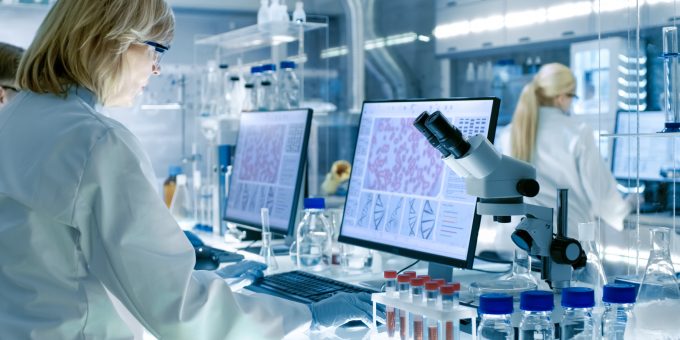
Can AI speed scientific innovation in times of crisis? iStockPhoto.com // gorodenkoff
AI and the scientific imagination
Climate change and COVID-19 are two key problems that have highlighted humanity’s race against time. In each case, life-saving scientific breakthroughs have hinged on imagining new solutions to seemingly unsolvable social problems. Could AI be the key to speeding up the process? A new paper, published in Nature Human Behavior, investigates.
Authors Jamshid Sourati and James A. Evans provided AI with millions of scientific articles—1.5 million articles related to energy efficient technologies and 27 million related to medications—in order to determine AI’s effectiveness in accelerating science.
AI proved immensely fruitful. Each of the researchers’ AI models predicted both scientific discoveries and their discoverers four times faster than experts in the field were able to. Not only that, AI was able to fill in gaps of scientific knowledge and reveal new pathways to creation. Therefore, the authors conclude, AI sharpens the distance and focus of our scientific spyglass, potentially easing expedited science in times of need.
The Terminator, i, ROBOT, and other films reflect a common fascination with whether artificial intelligence will make or break humanity. While the answer to that question is still lost in the matrix, this article highlights AI as a helpful scientific tool, created by humans and now able to aid us in moments when we have little time to waste.
